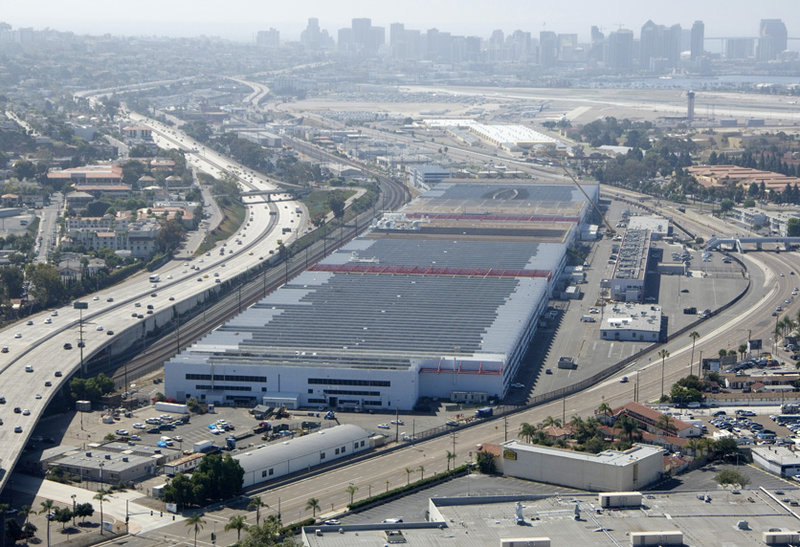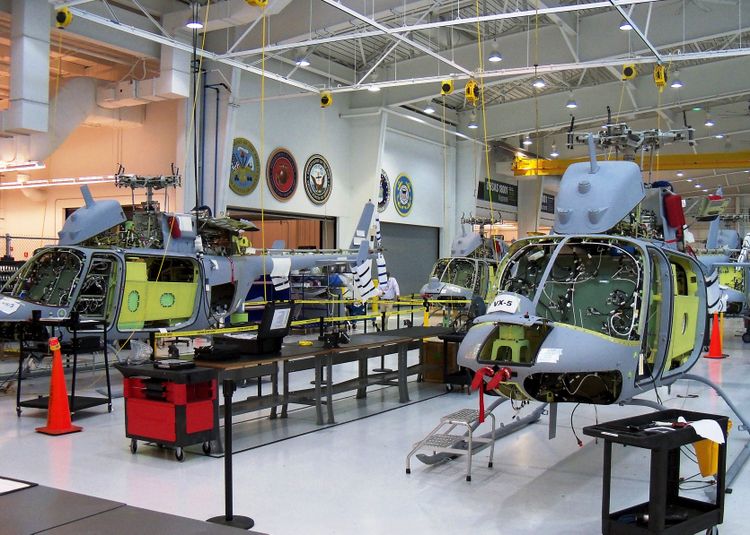Daily Business Report-Dec. 26, 2018
The approximately 70-acre Naval complex at 4301 Pacific Highway occupies approximately 1.2 million square feet in 10 buildings. (Photo courtesy of Space and Naval Warfare Systems Command)
SPAWAR complex open for redevelopment
By Dave Schwab | San Diego Community Newspaper Group
Redevelopment of the Navy’s Old Town Complex is being considered with initial interest in the prospect exceeding expectations.
“We had an industry day on Nov. 4 expecting 40 companies and 50 people, and we got 96 companies and 208 people,” said Greg Geisen, director of facilities plans at Space and Naval Warfare Systems Command (SPAWAR) U.S. Navy. “We got folks flying in from all over, some of the biggest, top-10 level developers in the nation. We were very pleased with the outcome.”
The approximately 70-acre Naval complex at 4301 Pacific Highway occupies approximately 1.2 million square feet in 10 buildings including about 4,000 parking spaces.
But Geisen noted the World War II-era, warehouse-style complex, which was built to manufacture planes, is outdated in many ways today.
“We do not utilize the full volume of this facility, and are spread out real thin,” said Geisen. “It’s a very inefficient way to operate. What we’re saying is very simple: We have 70 million square feet of space on 70 acres of land close to downtown San Diego and transit centers. We’d like to find a way to put in new facilities within that massive footprint, and leverage the land to pay for that.”
“Is there something that can be done to do that?,” said Geisen of what the Navy is asking of the real estate development industry, including architects and engineers, about possible redevelopment of Naval Base Point Loma Old Town Complex in San Diego’s Midway District.
There are options in redeveloping the Navy’s Old Town SPAWAR complex.
“It may take the form of a land swap, which means, I have a piece of land, you give me a new building, and I’ll give you a 50-, 75- or 99-year lease,” said Geisen. “It would be a public-private partnership.”
Cathy Kenton, chair of the Midway-Pacific Highway Community Planning Group, said the group looks favorably on the Navy’s plans.
“The Planning Group is excited about the possibilities of redeveloping the Navy’s Old Town Complex,” Kenton said. “The Navy is proving to be a good neighbor within the community, and we’re looking forward to learning more as their plans develop.”
SPAWAR’s mission on behalf of the Navy is to provide the fleet with networking communications, command and control and information system reconnaissance. “We are the nervous system,” said Geisen of the role of SPAWAR, which has worldwide outlets and a $7 billion annual budget.
Geisen added the Navy needs to modernize its Old Town complex to keep pace with recruitment of candidates in a very competitive jobs market.
“There are 10,000 people working for SPAWAR, and 5,000 of them are here in San Diego, 2,000 in Old Town,” he said. “We’re competing with Qualcomm, AOL, and Amazon for high-tech grads and young engineers coming out of places like UC San Diego. Probably not a lot of them want to work in a World War II warehouse. It’s hard to be attractive when your facilities are subpar.”
Where things go from here is that those companies who attended the recent “open house” at the Naval complex have until Jan. 19 to submit a written interest, said Geisen.
“We don’t know what we’re going to see,” he said adding,”But we’re not expecting them to submit blueprints giving away their visions.”
The Navy spokesperson said the question to be answered is, “Can we find a way to fulfill the Navy’s mission, which requires us to have a modern, safe and secure facility with this real estate-type of exchange?”
________________________
Civic San Diego board acts
on 3 development projects
Union and Ash

The board of Civic San Diego approved the design for “Union & Ash,” a 36-story, 408-foot tall residential development proposed by Trammel Crow Residential. The project is located on the north side of West Ash Street between Union and Front streets in the Little Italy neighborhood of Downtown. The project proposes 395 residential units, 32 of which will be affordable housing units. The project was designed by Joseph Wong Design Associates and is anticipated to begin construction in late 2019 with occupancy by late 2021.
13th and Broadway
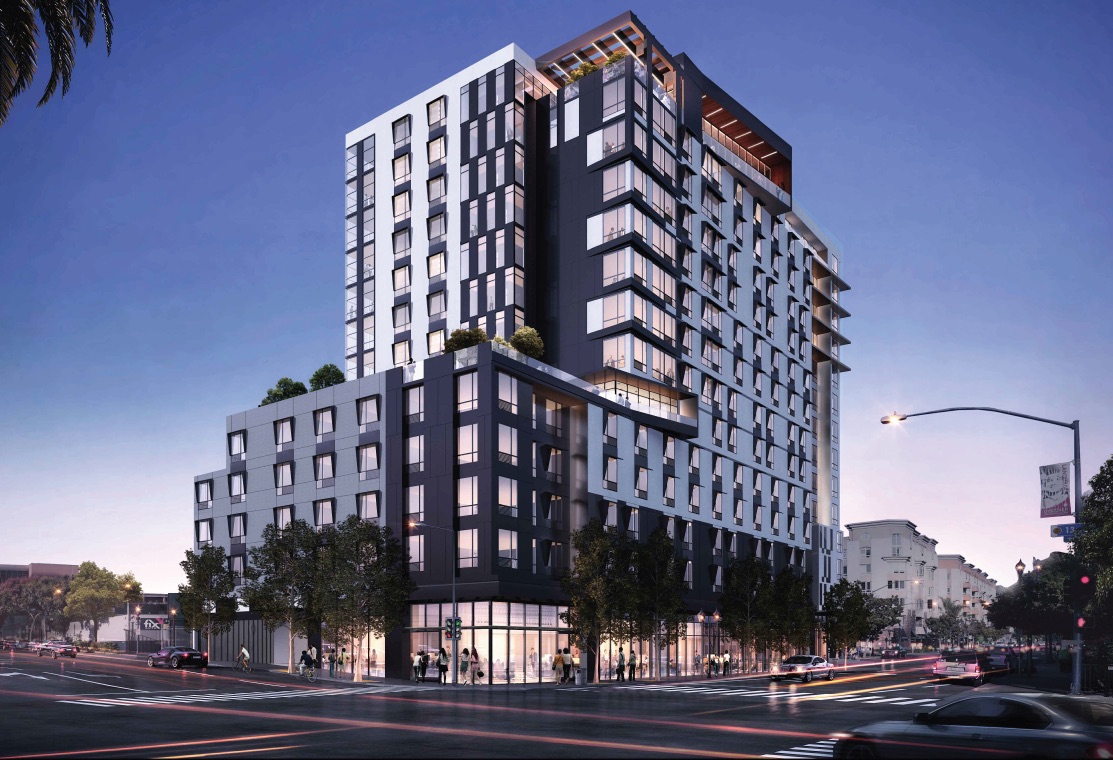
The board approved the design review and recommended approval of a Disposition and Development Agreement to City Council for “13th & Broadway,” a 14-story, 150-foot tall mixed-use, affordable housing development located in the East Village neighborhood of Downtown. The development is proposed by Chelsea Investment Corporation and will be comprised of 273 residential units, 270 of which will be affordable, and have 3,200 square feet of street-level commercial space. The proposed project will advance the development of the long under-utilized affordable housing site on Broadway, between 13th and 14thstreets and facilitate the development of a new East Village Fire Station. The total project cost is approximately $140M. Pending City Council approval, the City will provide gap-financing assistance in the form of a $14.6M loan (approximately $54,000 per unit). The project will be considered for approval by the City Council in early 2019 and, if approved, construction could begin in the Spring of 2020.
Jefferson Makers Quarter
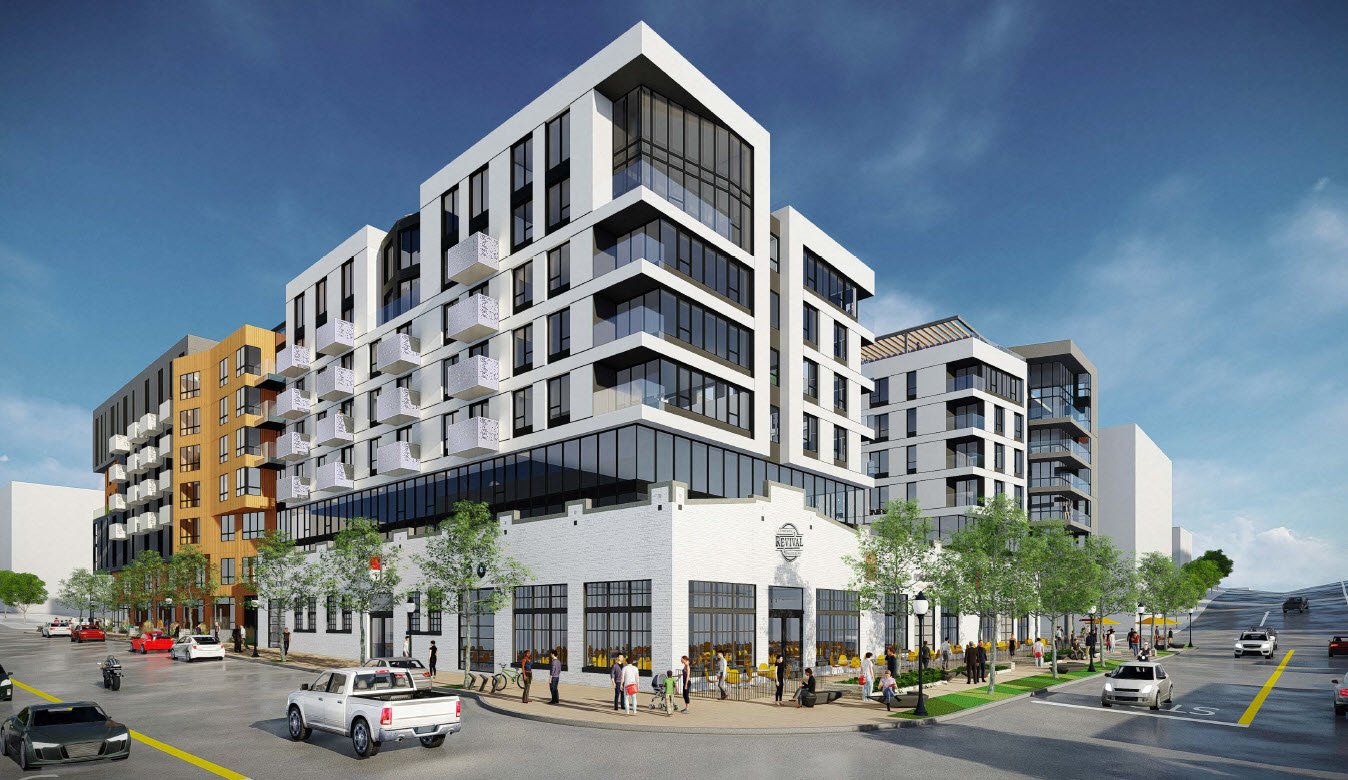
The board approved the Jefferson Makers Quarter project, an eight-story, 89-foot tall residential development on a full-block site in the East Village neighborhood of Downtown. The Project by JPI Real Estate is proposed to include 368 dwelling units and 12,000 square feet of commercial space. The project was designed by Carrier Johnson+Culture Architects. The design aims to create a balance between the rigid grid and the natural landscape, as well as incorporate the historic context, and integrate a unique urban experience. The project received letters of support from East Village Association and the Downtown San Diego Partnership and is anticipated to begin construction in December 2019 and completed in October 2022.
________________________
A California milestone for electric vehicles
By Dan Morain | CALmatters
Nearly half the electric vehicles on the road nationally are in California, the electric car advocacy nonprofit Veloz reports.
As of last month, 500,000-plus EVs were registered here, accounting for 7.1 percent of California car sales in the first three quarters of the year.
California’s goals:
• Five million electric cars on the road by 2030. That would result in a 10 percent reduction in emissions from the transportation sector, saving $640 million annually in air pollution related health costs, Veloz estimates.
• Two hundred fifty thousand public charging stations by 2025.
The California Air Resources Board earlier this month approved spending $200 million to increase access to charging in the Riverside-San Bernardino, Santa Cruz-Watsonville and in the Santa Rosa regions. The plan includes incentives for low-income drivers in rural areas.
• Thanks, Volkswagen: The money comes from VW’s settlement of the Dieselgate case in which the automaker falsified data about emissions from its diesel cars.
The California New Car Dealers Association reports electric vehicles increased 4 percent in the first nine months of 2018 in California.
• Light truck sales increased by 5.2 percent statewide, reflecting consumer tastes and relatively inexpensive gasoline. Nationally, light truck sales rose 6 percent.
________________________
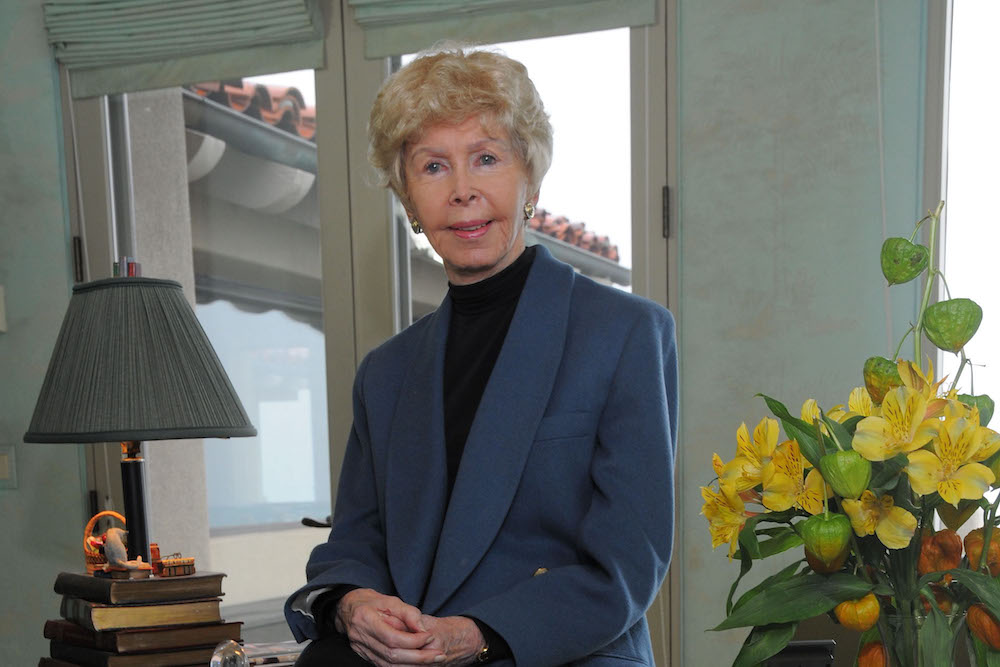
Philanthropist Audrey Geisel remembered
Audrey Geisel, a devoted philanthropist, business leader and wife of the late Theodor “Dr. Seuss” Geisel, died on Dec. 19, 2018. She was 97.
Geisel served as president of Dr. Seuss Enterprises and the Dr. Seuss Foundation following the death of her husband. She had a longstanding relationship with UC San Diego, donating Theodor Geisel’s personal papers to the university library, including more than 12,000 items —original drawings, manuscripts, sketches, books and other memorabilia — documenting the many creative contributions of Dr. Seuss. In 1995, the university’s central library was renamed the Geisel Library building to honor Theodor and Audrey Geisel, in recognition of a $20 million gift from Audrey.
“Audrey Geisel was a steadfast and beloved friend of the campus who will be truly missed,” said UC San Diego Chancellor Pradeep K. Khosla. “UC San Diego would not be the same top-ranked research institution it is today without her enthusiastic generosity and vast university involvement.”
Geisel made a lasting impact on nearly every area of the campus — from the UC San Diego Library, Scripps Institution of Oceanography and Health Sciences, to scholarship and fellowship support, The Preuss School UC San Diego, and renovations of the Faculty Club. To honor her support, Geisel was awarded the prestigious Chancellor’s Medal as part of the university’s 50th Anniversary celebration; she was also recognized as the honoree of the Heart of San Diego Gala for her support of the UC San Diego Sulpizio Cardiovascular Center.
In 2013, Geisel donated $2 million for the renovation of University House, the private residence for the UC San Diego Chancellor. The historic structure and venue now used for campus celebrations and fundraising events was formally renamed the “Audrey Geisel University House” in her honor.
________________________
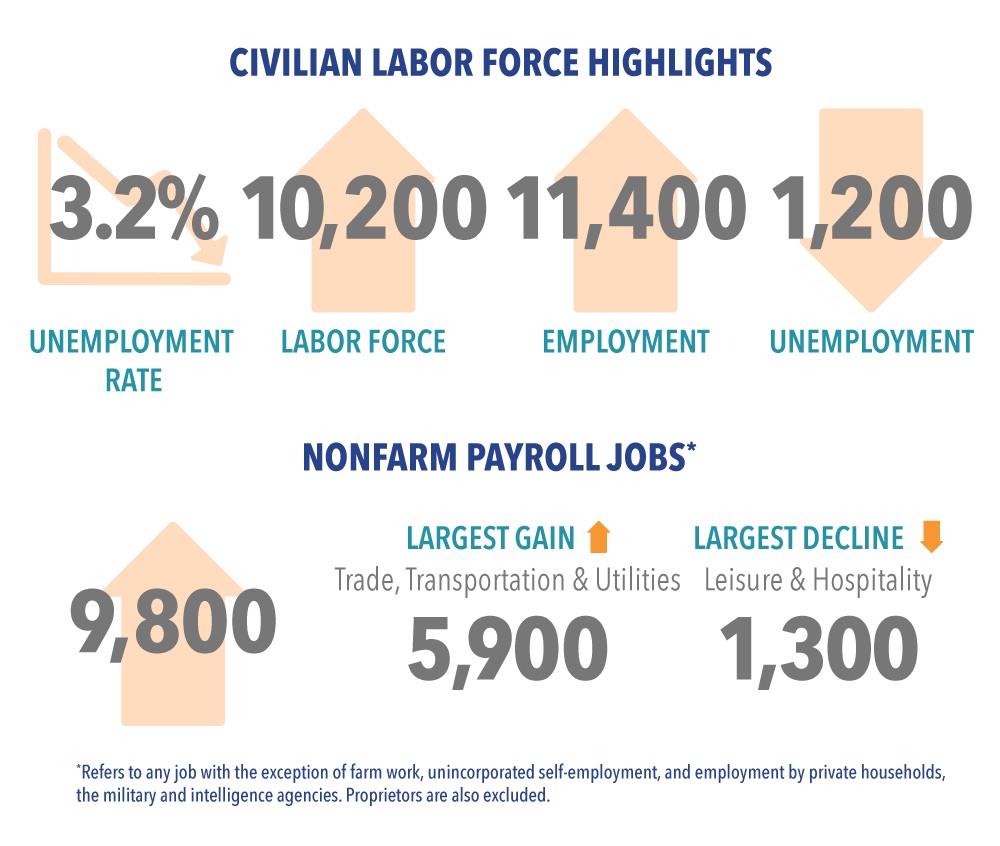
San Diego County jobless rate
dips to 3.2 percent in November
The unemployment rate in the San Diego County was 3.2 percent in November, down from a revised 3.3 percent in October 2018 and below the year-ago estimate of 3.5 percent. This compares with an unadjusted unemployment rate of 3.9 percent for California and 3.5 percent for the nation during the same period.
Between October 2018 and November 2018, total nonfarm employment increased from 1,494,000 to 1,503,800, a gain of 9,800 jobs. Agricultural employment decreased by 300, from 8,800 to 8,500 jobs.
• Employment in trade, transportation, and utilities grew the most over the month, adding 5,900 jobs. The majority of this growth was located in retail trade (up 5,700 jobs). Transportation, warehousing, and utilities increased by 500 jobs, and wholesale trade declined by 300 jobs.
• Government added 2,900 jobs, with more than half of the increase in local government (up 1,600 jobs). State government added 900 jobs and federal government gained 400 payroll jobs.
• Leisure and hospitality recorded the largest month-over loss, declining by 1,300 jobs. Accommodation and food services decreased by 1,400 jobs and was offset by an increase of 100 jobs in arts, entertainment and recreation.
Between November 2017 and November 2018, total nonfarm employment grew by 1.8 percent, up 26,400 jobs. Agricultural employment did not change.
• Professional and business services added the most jobs over the year, growing by 16,500. Fifty four percent of the increase was in professional, scientific, and technical services (up 8,900 jobs). Administrative and support services, which includes temporary help firms gained 6,300 jobs and management of companies and enterprises added 1,200 jobs.
• Manufacturing employment increased by 6,000. Durable goods accounted for the majority of the gain, adding 5,900 jobs. Nondurable goods gained 100 jobs.
• Trade, transportation, and utilities reported the largest year-over employment decline, losing 3,400 jobs. Seventy one percent of the loss was in wholesale trade (down 2,400 jobs). Transportation, warehousing and utilities declined by 800 jobs and retail trade dropped by 200 jobs.

